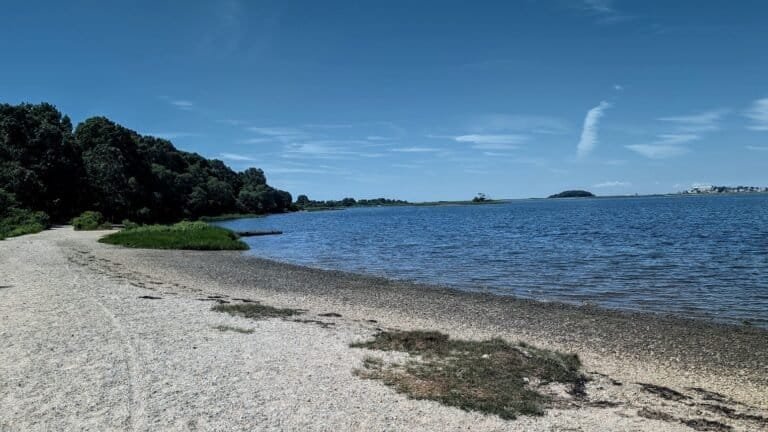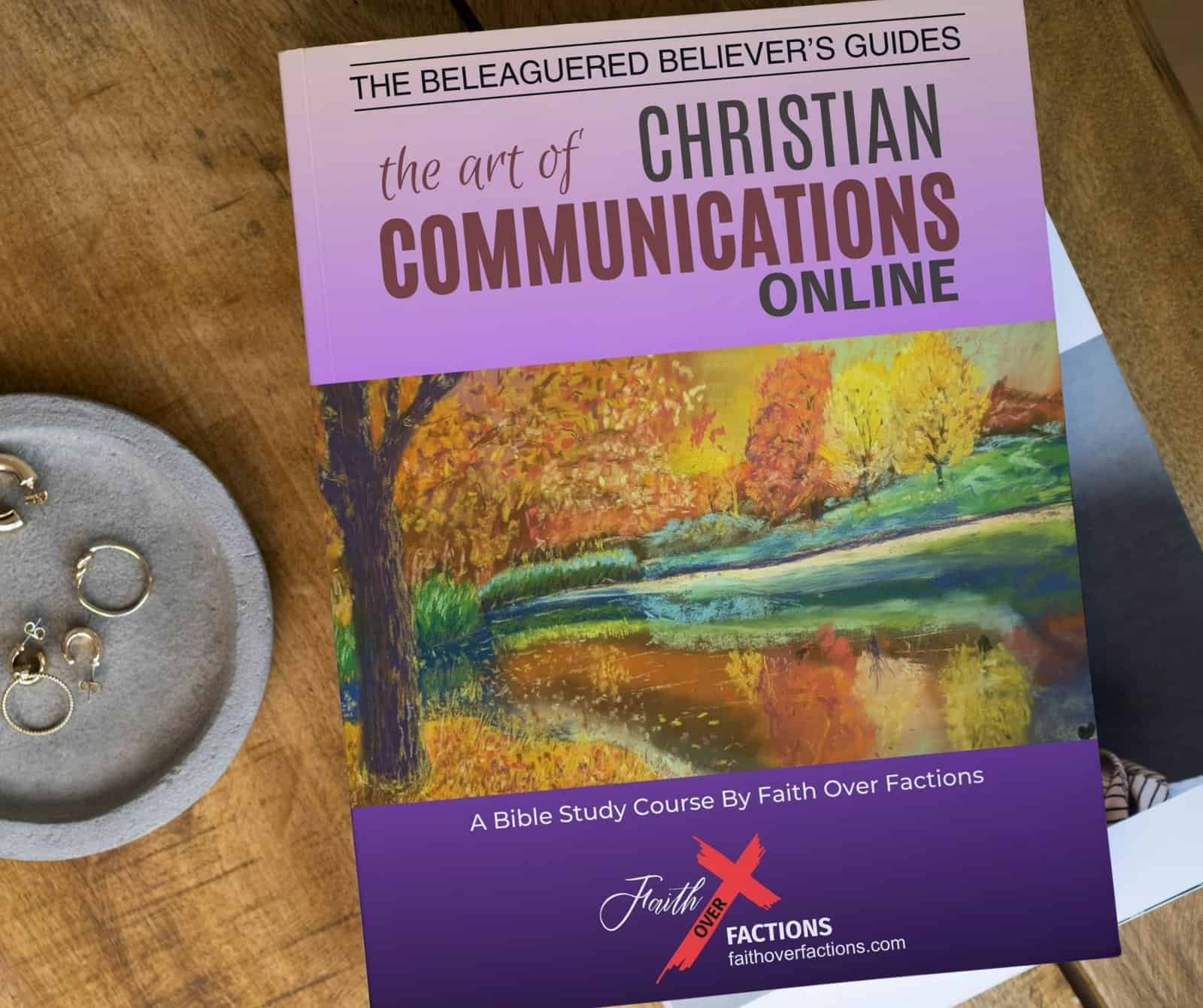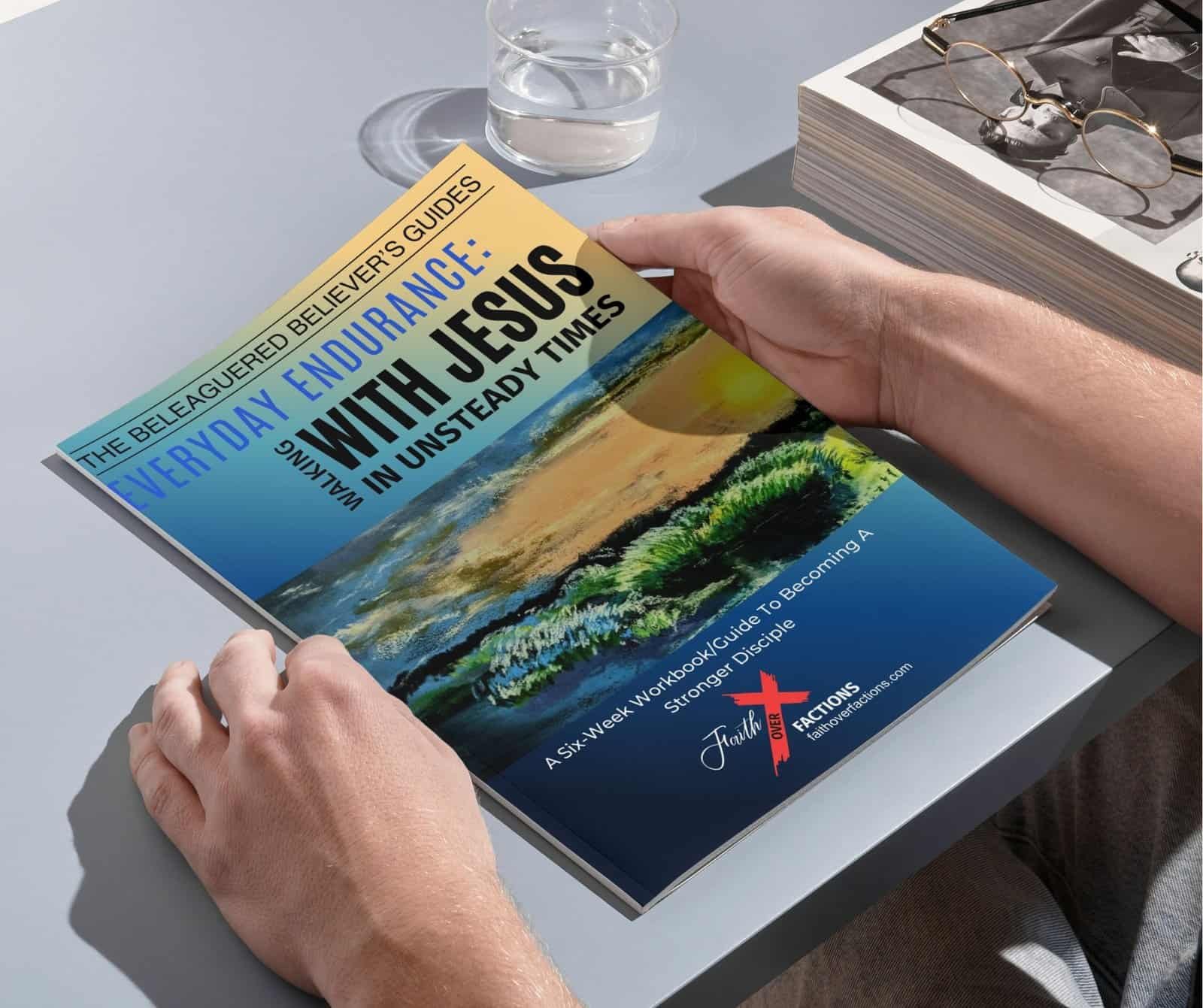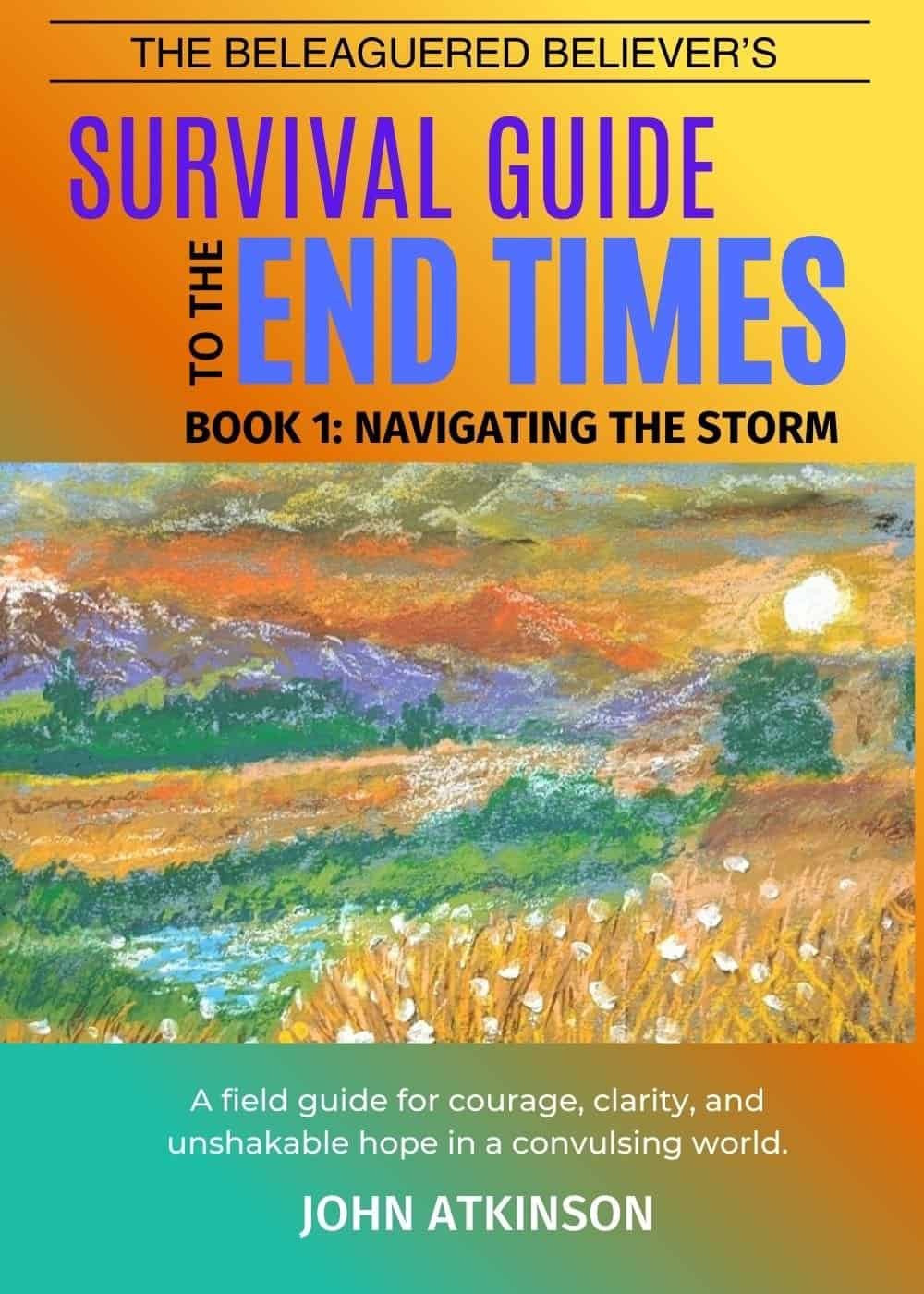

Genesis 5–9 is more than a flood story. It is a divine lament. The world was washed, but not yet whole. Noah’s obedience saved lives—but not hearts. The ark preserved life, but not purity. This Mile Marker invites us to face the difference between survival and transformation. God’s covenant promise rises like a rainbow, but the ache of Eden remains. The flood was never the end. It was only the beginning of a deeper longing—a longing for the Savior who would cleanse not with water, but with His own blood.
“I have placed my rainbow in the clouds. It is the sign of my covenant with you and with all the earth.”
Genesis 9:13, NLTGenesis 5–9 tells the story of a flood—but more than that, it tells the story of divine grief. The world has grown heavy with violence. Brother has turned against brother, cities throb with corruption, and the image of God in humanity is being disfigured by pride and bloodshed.
This isn’t a divine tantrum—it’s a lament. God doesn’t destroy because He delights in punishment. He grieves because goodness has been trampled. “So the Lord was sorry he had ever made them and put them on the earth. It broke his heart” (Genesis 6:6, NLT). This moment pierces the entire arc of redemptive history. Judgment falls not from hatred, but from holiness wounded by sin.
Arthur Pink wrote: “God is slow to anger, but when His righteous wrath is stirred, nothing can stand before it. The Deluge was not only a judgment, it was a solemn declaration that sin is a thing He abhors.”¹ This is not the anger of a tyrant, but the aching justice of a Creator betrayed by His creation.
And yet—even here—mercy floats. As the waters rise, so does the ark. God preserves a remnant. He makes a way. But the flood, while it drowns wickedness, cannot drown the sickness lodged deep in the human soul.
Noah walks out of the ark into a world rinsed clean, but the shadow still clings. There is no such thing as a flood strong enough to erase the fracture in the human heart. What was external is washed—but what is internal remains deeply cracked. “The intent of man’s heart is evil from his youth” (Genesis 8:21, NLT).
This Mile Marker is not about the storm—it’s about the aftermath. It’s about stepping into survival and asking: Was I changed, or just spared? The flood waters recede, but the deeper rescue is still to come. The gospel whispers from the horizon: only blood—not rain—can heal what sin has ruined.
¹Arthur W. Pink, Gleanings in Genesis (Moody Press, 1922), p. 104.
Humanity multiplies—but so does depravity. Scripture tells us plainly: “Now God saw that the earth had become corrupt and was filled with violence” (Genesis 6:11, NLT). The soil itself bears the weight of human wickedness. Blood cries from the ground. Evil is no longer isolated—it has gone systemic. And in this bleak panorama, God is not just angry. He is grieved (Genesis 6:6). The Creator mourns what His creation has become.
One man—Noah—stands apart. “Noah was a righteous man… He walked in close fellowship with God” (Genesis 6:9, NLT). In a generation that had forgotten heaven, Noah builds something absurd—a boat in the middle of dry land. Obedience becomes his ark long before the wood is cut. This isn’t just about survival. It’s about continuity. Noah’s faith becomes a bridge between what was and what might still be.
God gives detailed instructions: measurements, materials, even animal logistics (Genesis 6:14-22). Then the rain begins. For forty days and nights, the skies open and judgment pours out (Genesis 7:12). The waters rise. The mountains disappear. Everything with breath outside the ark dies.
And then—a long silence. 150 days of waiting. No fresh word. Just floating in the aftermath of wrath. But finally, the water begins to recede. The ark finds rest on the mountains of Ararat (Genesis 8:4). Noah exits the ark and immediately builds an altar. He offers a sacrifice—not as repayment, but as recognition. God's heart responds, not with more fury, but with covenant. “Never again will I destroy all living things” (Genesis 9:11, NLT). A rainbow is set in the clouds—an everlasting reminder of mercy remembered.
But the closing note? It isn’t triumphant.
Noah, the faithful one, plants a vineyard. Then he drinks from it until he’s drunk. He lies exposed in his tent. His son, Ham, sees him in shame—and the long shadow of brokenness falls again (Genesis 9:20-21). The flood changed the landscape. But it did not change the heart. The world was washed—but it was not yet whole.
As A.W. Tozer said: “The mercy of God is not a temporary mood, but an attribute of His eternal being.”² The flood may have ended, but the need for mercy continues. Because sin cannot be soaked away. It must be surrendered.
²A.W. Tozer, The Knowledge of the Holy (Harper & Row, 1961), p. 95.
Across the ancient Near East, flood myths abounded. From the Epic of Gilgamesh to the Atrahasis Epic, cultures preserved stories of angry gods sweeping away humanity in storms of vengeance. But Genesis tells a different story. Not one of divine irritation—but of divine heartbreak.
Here, the flood isn’t cosmic rage—it’s grief incarnate. “It broke His heart” (Genesis 6:6, NLT). God doesn’t act out of cruelty but out of wounded holiness. He doesn’t lose control; He honors it. Where pagan gods destroy for sport, the God of Israel laments for love.
And Noah—this man set apart—is not the hero of a flawless moral tale. He is not sinless. He is faithful. His righteousness is relational, not performance-based. He clings to God while others drift. He builds while others mock. He walks with the Lord while others run.
The ark itself becomes more than just a rescue craft. Its construction—sealed with pitch, covered inside and out (Genesis 6:14)—foreshadows salvation through covering. It whispers of another basket: the one that held baby Moses amid the reeds of judgment (Exodus 2:3). And it stretches forward still to another vessel—the sealed tomb of Christ—where God would again confront death, not with violence, but with mercy.
Judgment surrounds. But mercy holds.
As Charles Spurgeon once wrote, “He who counts the stars and calls them by their names is in no danger of forgetting His own children. He knows your case as thoroughly as if you were the only creature He ever made.”³ This is not a distant deity—it is a covenant God, grieving, rescuing, remembering.
The flood wasn’t the end. It was the warning. The ark wasn’t the cure. It was the carrier. And Noah’s righteousness wasn’t the solution. It was the signpost. This is history not just preserved—but pulsing with divine hope.
³Charles H. Spurgeon, Morning and Evening (Hendrickson Publishers, 1991), May 10 Evening.
Corruption. Violence. Divine grief. Incomplete healing.
The flood was not a cosmic reset button—it was a reckoning. Yes, the surface was scrubbed clean. Yes, the violence was silenced—for a moment. But underneath the still waters, a deeper wound remained. What needed to be washed away wasn’t just behavior—it was rebellion rooted in the heart.
“The human heart is the most deceitful of all things, and desperately wicked” (Jeremiah 17:9, NLT). The flood revealed this, not resolved it. What came down from heaven—rain—was powerful. But what was required from heaven—grace—was still to come.
Noah’s obedience spared his family, but it could not sanctify their hearts. He stepped off the ark into a new world with old temptations. His first act of worship was genuine—but his next act, in planting a vineyard and becoming drunk, exposed the fragility of even the righteous (Genesis 9:20-21). The ark preserved life, but not innocence. The rainbow promised that wrath would pause—but it did not yet promise that hearts would be restored.
As Arthur Pink noted, “The ark was a provision of mercy, yet it was not a means of regeneration. It floated over the waters of judgment but could not subdue the nature that caused the judgment.”⁴ The flood treated the symptom. The disease remained. External cleansing will never heal internal corruption.
We need more than preservation—we need transformation.
And that transformation doesn’t come from rain. It comes from a cross. From wood not sealed with pitch, but stained with blood. From a judgment not poured out on the world—but upon a willing Savior.
⁴Arthur W. Pink, Gleanings in Genesis (Moody Press, 1922), p. 109.
The ark is more than wood and pitch—it is prophecy in planks. A divine shadow cast ahead into the shape of a Savior. It was God who gave the design. God who closed the door. God who bore them through the judgment He Himself declared. And in all of it, we see the outline of the One who was to come.
The ark preserved life. But Christ is life. The ark shielded Noah’s family from judgment—but Christ stepped into judgment itself. He didn’t build a vessel to escape the storm—He became the vessel that would absorb its full fury. As the flood covered the earth, so the wrath of God would one day descend again—this time not on the wicked, but on the innocent Lamb of God.
The rainbow stretched across the sky like a warrior’s bow—curved upward, away from earth, as if God had laid His weapon down. “I have placed my rainbow in the clouds. It is the sign of my covenant with you and with all the earth” (Genesis 9:13, NLT). Peace, not punishment. Mercy, not destruction.
But that peace would not be purchased by restraint alone. It would be purchased in blood. As A.W. Tozer wrote: **“The cross is the lightning rod of grace that short-circuits God’s wrath to Christ so that only the light of His love remains for believers.”**⁵
Christ is the rainbow made flesh. He is the covenant come down. Not just a sign of promise—but the person in whom all promises find their yes (2 Corinthians 1:20). Through Him, God doesn't just withhold judgment—He transforms it. He doesn’t merely lift the storm—He stands in its path and is crushed by its weight.
This is more than theology. It is hope incarnate.
⁵A.W. Tozer, The Radical Cross: Living the Passion of Christ (WingSpread, 2005), p. 29.
Genesis 5–9 is more than a flood story—it’s a mirror. It holds a haunting but hopeful question before us: Are we seeking to be merely cleansed, or deeply transformed?
Rain can wash the earth—but it cannot change the heart. Judgment might restrain evil for a time—but it cannot renew what sin has hollowed out. Noah’s faith spared his family. God’s mercy sealed the door of the ark. But none of it reversed the fall. The waters receded, but the fracture remained.
And so it is with us.
We long for new beginnings. But what if what we need is not a second chance—but a second birth?
The gospel doesn’t offer us a clean slate to try harder. It offers us a new heart (Ezekiel 36:26). Not a better version of ourselves, but a resurrected one. The invitation is not just to be spared from wrath—but to be remade through it. To go through the storm with the Savior who absorbs it for us, and emerges alive on the other side—carrying us with Him.
As Charles Spurgeon declared, **“Morality may keep you out of jail, but it takes the blood of Jesus Christ to keep you out of hell.”**⁶ We are not saved by effort, nor preserved by luck. We are carried, covered, and claimed by a Redeemer who became the storm so we could be still.
This is the call behind the flood narrative. It’s not a call to admire Noah—it’s a call to cling to Christ. The ark points us forward, but the cross brings us home.
⁶Charles H. Spurgeon, The Treasury of the New Testament (Marshall, Morgan & Scott, 1950), Vol. 1, p. 327.
When Noah stepped out of the ark, the ground was dry—but the world was still cracked. It had been rinsed, yes. Quieted. But not yet restored. The air was different. The silence was holy. But the human heart remained the same.
Above it all stretched a covenant in color—a bow hung in the sky not in threat, but in promise. A weapon laid down by the One who alone holds justice and mercy in tension. God remembered. And because He remembered, grace endured.
But the ark, for all its faith and obedience, was never the solution. It was the signpost. The true rescue would not float above judgment—it would walk directly into it. Not wood sealed with pitch—but wood stained with blood. Not animals two by two—but a Lamb led alone.
We are not saved because we are righteous.
We are not spared because we deserve it.
We are saved because God remembers.
The flood reminds us: judgment is real—but mercy rises higher. Grace floats, always, above the rising waters. And it calls to us still: step into the One who saves—not from the outside in, but from the inside out.


The Art of Christian Communications Online
Download The Art of Christian Communication Online—a free guide & workbook to help believers communicate with truth, empathy, and grace in every online conversation.
No email address required.

Find strength for weary days.
Download Everyday Endurance: Walking With Jesus in Unsteady Times
—a free devotional guide & workbook to help you build spiritual and emotional resilience through prayer, reflection, and daily trust in God.
No email address required

The Survival Guide for Beleaguered Believers is here—offering strength when systems fail, clarity whenlies spread, and hope that endures when the world seems out of control.
Don’t just survive the chaos—stand firm in Christ.
📖 Always free with Kindle Unlimited. Available in paperback and hardcover as well!
All Site Photography and Artwork Originals from John's wanders and studio unless noted.
Scripture quotations marked (NLT) are taken from the Holy Bible, New Living Translation, copyright © 1996, 2004, 2015 by Tyndale House Foundation. Used by permission of Tyndale House Publishers, Carol Stream, Illinois 60188. All rights reserved.
Scripture quotations marked (AMP) are taken from the Amplified® Bible,
Copyright © 1954, 1958, 1962, 1964, 1965, 1987, 2015 by The Lockman Foundation
Used by permission. www.lockman.org
We completely recommend E-Sword, a Free Study Bible available for most mobile and desktop platforms.